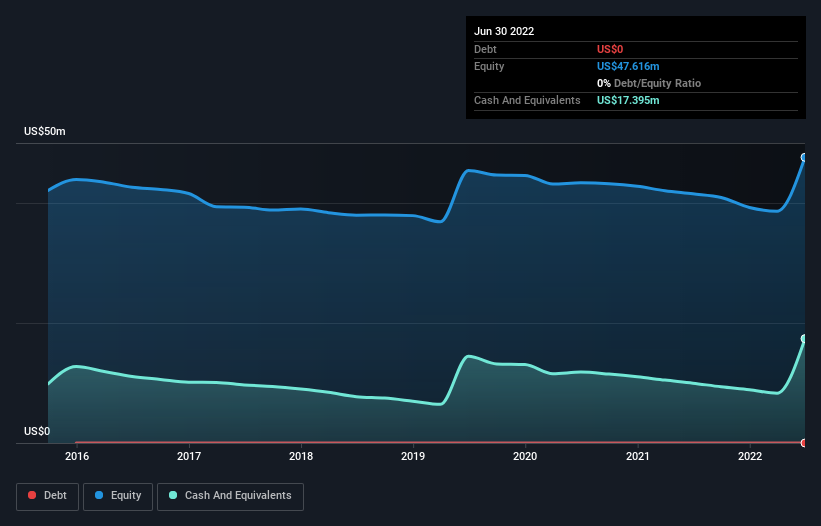Here's Why We're Not At All Concerned With Falcon Oil & Gas' (CVE:FO) Cash Burn Situation
There's no doubt that money can be made by owning shares of unprofitable businesses. For example, although Amazon.com made losses for many years after listing, if you had bought and held the shares since 1999, you would have made a fortune. But while history lauds those rare successes, those that fail are often forgotten; who remembers Pets.com?
So, the natural question for Falcon Oil & Gas (CVE:FO) shareholders is whether they should be concerned by its rate of cash burn. In this report, we will consider the company's annual negative free cash flow, henceforth referring to it as the 'cash burn'. Let's start with an examination of the business' cash, relative to its cash burn.
See our latest analysis for Falcon Oil & Gas
Does Falcon Oil & Gas Have A Long Cash Runway?
A company's cash runway is calculated by dividing its cash hoard by its cash burn. When Falcon Oil & Gas last reported its balance sheet in June 2022, it had zero debt and cash worth US$17m. In the last year, its cash burn was US$2.5m. So it had a cash runway of about 7.0 years from June 2022. While this is only one measure of its cash burn situation, it certainly gives us the impression that holders have nothing to worry about. You can see how its cash balance has changed over time in the image below.
How Is Falcon Oil & Gas' Cash Burn Changing Over Time?
Falcon Oil & Gas didn't record any revenue over the last year, indicating that it's an early stage company still developing its business. Nonetheless, we can still examine its cash burn trajectory as part of our assessment of its cash burn situation. Over the last year its cash burn actually increased by 12%, which suggests that management are increasing investment in future growth, but not too quickly. That's not necessarily a bad thing, but investors should be mindful of the fact that will shorten the cash runway. Falcon Oil & Gas makes us a little nervous due to its lack of substantial operating revenue. So we'd generally prefer stocks from this list of stocks that have analysts forecasting growth.
How Easily Can Falcon Oil & Gas Raise Cash?
Given its cash burn trajectory, Falcon Oil & Gas shareholders may wish to consider how easily it could raise more cash, despite its solid cash runway. Companies can raise capital through either debt or equity. One of the main advantages held by publicly listed companies is that they can sell shares to investors to raise cash and fund growth. We can compare a company's cash burn to its market capitalisation to get a sense for how many new shares a company would have to issue to fund one year's operations.
Falcon Oil & Gas' cash burn of US$2.5m is about 2.1% of its US$117m market capitalisation. That means it could easily issue a few shares to fund more growth, and might well be in a position to borrow cheaply.
How Risky Is Falcon Oil & Gas' Cash Burn Situation?
As you can probably tell by now, we're not too worried about Falcon Oil & Gas' cash burn. In particular, we think its cash runway stands out as evidence that the company is well on top of its spending. While its increasing cash burn wasn't great, the other factors mentioned in this article more than make up for weakness on that measure. Looking at all the measures in this article, together, we're not worried about its rate of cash burn; the company seems well on top of its medium-term spending needs. Taking a deeper dive, we've spotted 3 warning signs for Falcon Oil & Gas you should be aware of, and 2 of them are potentially serious.
Of course, you might find a fantastic investment by looking elsewhere. So take a peek at this free list of interesting companies, and this list of stocks growth stocks (according to analyst forecasts)
Have feedback on this article? Concerned about the content? Get in touch with us directly. Alternatively, email editorial-team (at) simplywallst.com.
This article by Simply Wall St is general in nature. We provide commentary based on historical data and analyst forecasts only using an unbiased methodology and our articles are not intended to be financial advice. It does not constitute a recommendation to buy or sell any stock, and does not take account of your objectives, or your financial situation. We aim to bring you long-term focused analysis driven by fundamental data. Note that our analysis may not factor in the latest price-sensitive company announcements or qualitative material. Simply Wall St has no position in any stocks mentioned.
Join A Paid User Research Session
You’ll receive a US$30 Amazon Gift card for 1 hour of your time while helping us build better investing tools for the individual investors like yourself. Sign up here

 Yahoo Finance
Yahoo Finance 
